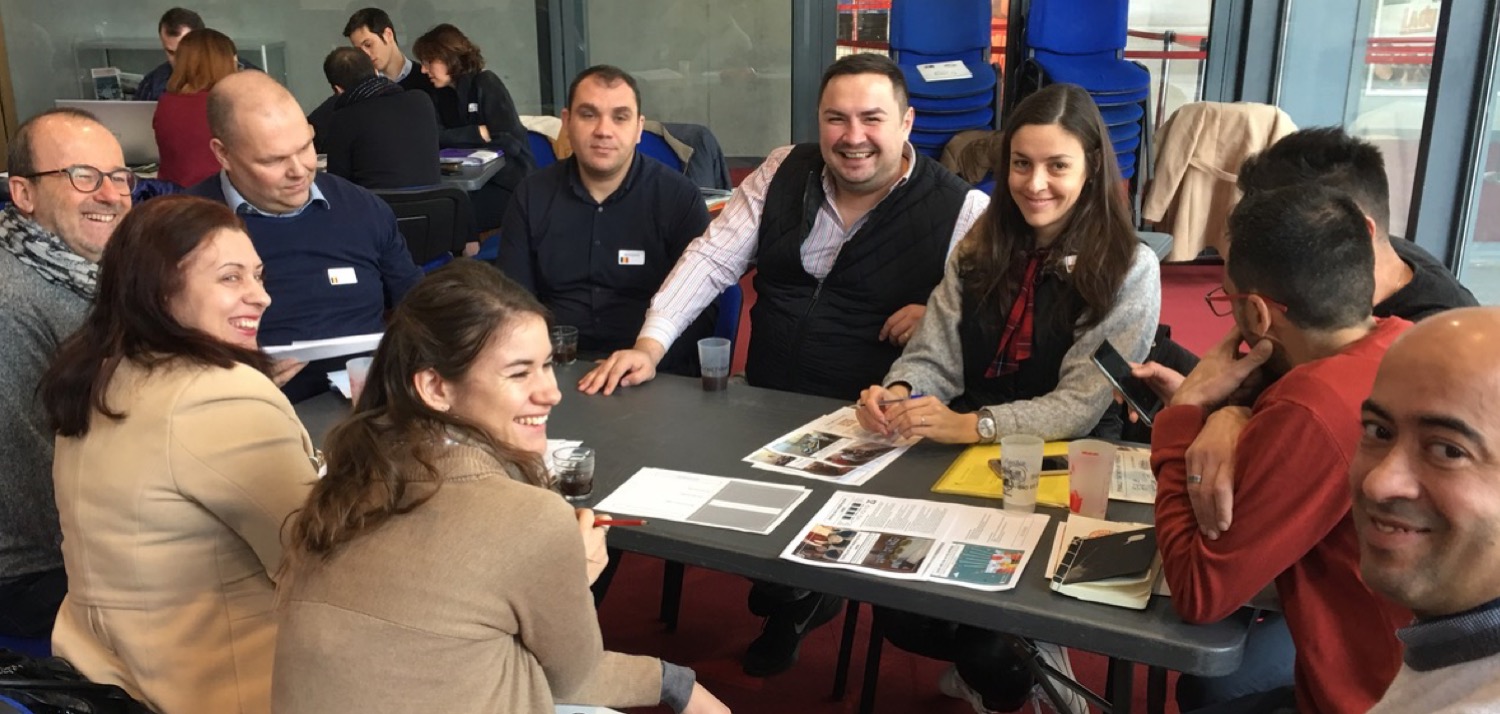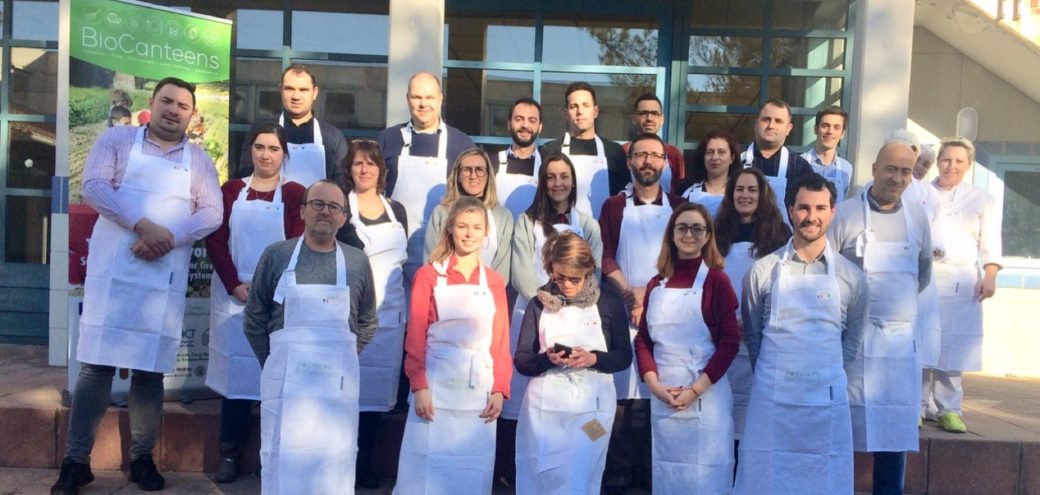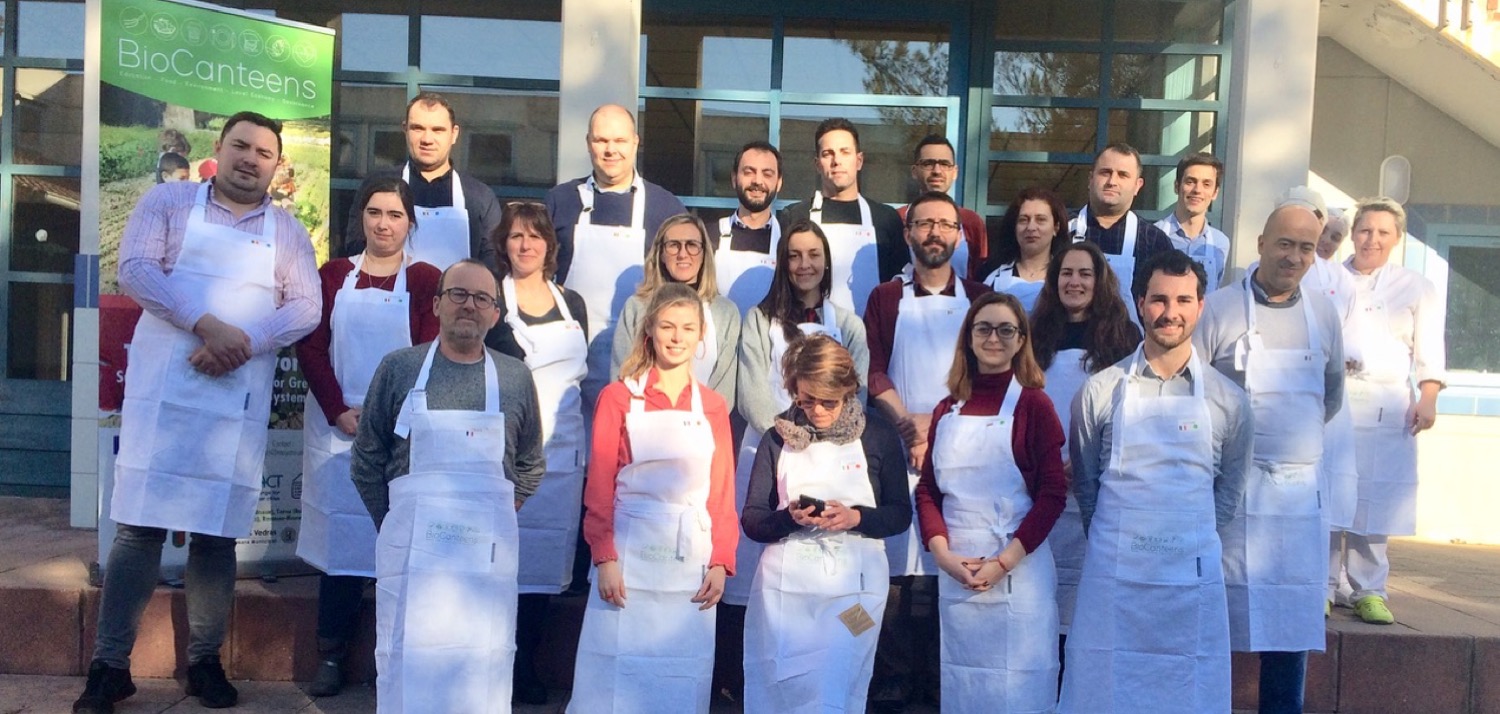
Some news from URBACT BIOCANTEENS Tansfer Network. Our first Phase 2 Transnational Meeting was pretty early with only 5 of the 6 city partners (despite efforts from all the Greek city of Trikala was not allowed to engage travel cost for administrative reasons…). Nevertheless the 3 days meeting in the LP city of Mouans-Sartoux were very successful. One focus was of course Tansfer Plans with a simplified template inspired from URBACT format: a TP-poster that allowed cities browsing a mini “TP exhibition” and peer review other cities’ plans. Most useful part of the TP-poster was a matrix with vertically the 8 BIOCANTEENS’ transfer modules and horizontally a timeline including phase 2 and beyond: this matrix induce all city partners to project themselves and think into a “step-by-step roadmap” to the transfer. Similar poster was presented by the LP for their improvement plan.
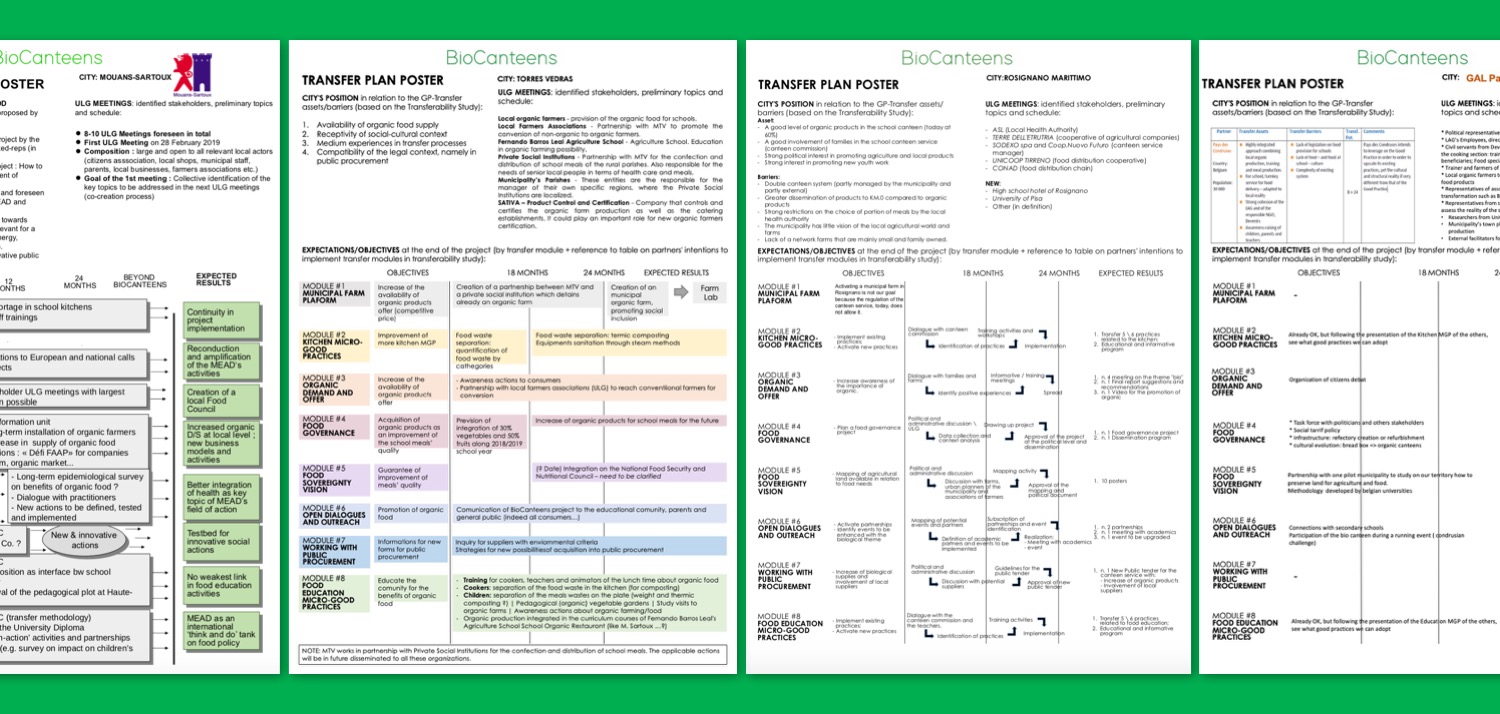
The limits of the peer review is that city are starting with different contexts and aiming at different “remix” of the Good Practice. Therefore they can challenge each other about the ambition of the transfer and the coherence of the plan but not so much about the content and pertinence of the transfer. Draft TP are due from all city partners for the end of February. Last but not least, despite not being able to join the meeting in Mouans-Sartoux, the Greek city of Trikala was the first to deliver its draft TP !
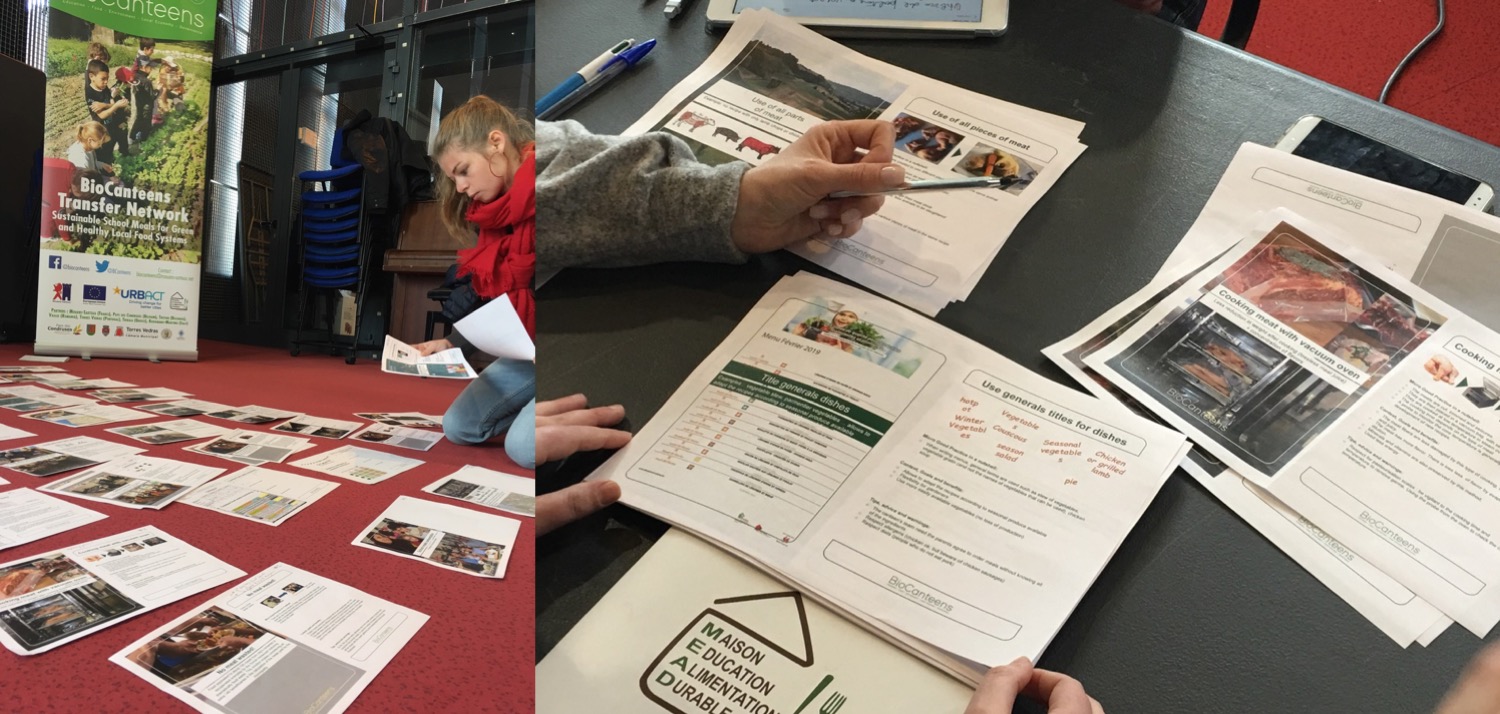
Beyond Transfer Plans, the BIOCANTEENS first phase 2 transnational meeting was aiming at kick-starting our module-based transfer process with the first module: Kitchen Micro-Good Practices. All city partners collected tips and remarkable cooking practices all with the aim of increasing quality meals, reducing food waste and enabling kitchen staff in their difficult job. In total city partners prepared 26 Kitchen Micro-Good Practices, shared and discussed them.
Then Lead Partner team had organized nothing less then an afternoon of immersion for the 25 city participants in Francois Jacob canteen kitchen, one of the 3 primary school canteens managed by Mouans-Sartoux municipality. Nothing better than “doing it” on top of “talking about it”: all dressed with BIOCANTEEN kitchen apron, coached by the cooks and canteens coordinators coming especially from the BIOCANTEENS’ cities and also motivated by the fact that their evening meals depends entirely from this “live-my-life” exercice!
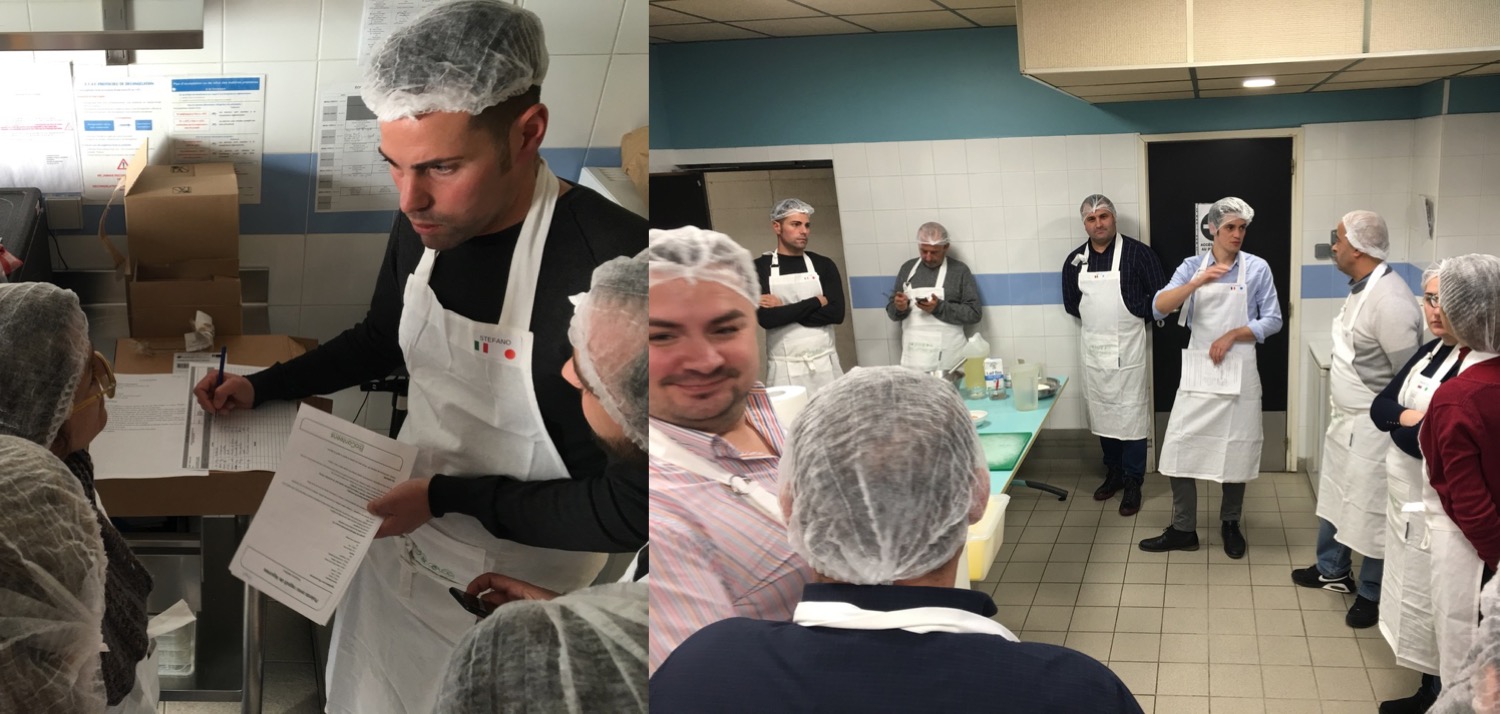
Beyond the great time cooking together each other’s recipes and building the team, this afternoon allowed to witness the Lead Partner Micro-Good Practices and to enrich them with participants’ mutual experience in kitchen. Then the meeting conclude with one last session on final selection of the lessons learned and co-writing of some intro sections such as “What do we mean by Kitchen Micro-Good Practices?” and “Why is it key for city policy makers and elected representatives?” or “How Chefs and canteens’ staff may use them?” and the we get our first module deliverable : an Handbook of Kitchen Micro-Good Practices for all BIOCANTEENS’ cities to start their transfer process!
